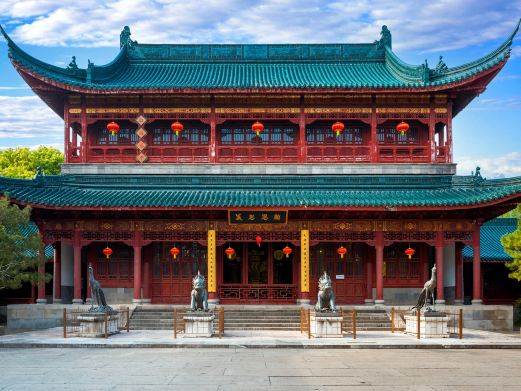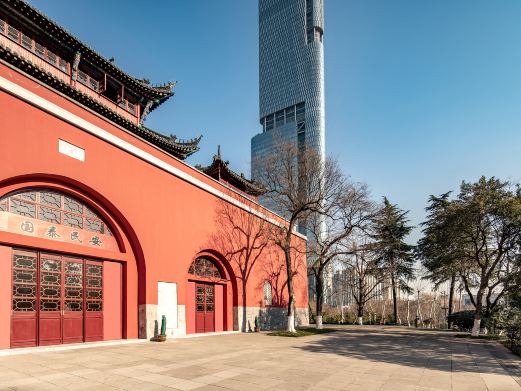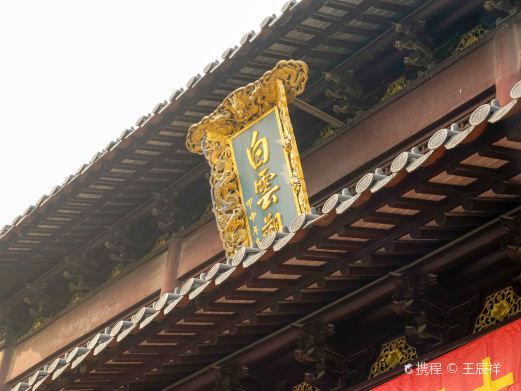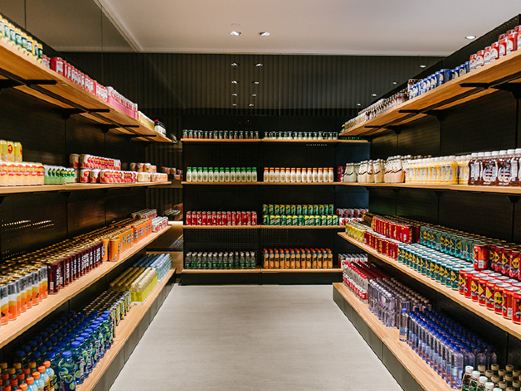Passing through Ganlu Temple and heading west, one encounters a square pavilion with stone pillars known as Jijiang Pavilion, historically referred to as Beigu Pavilion, and also known by other names such as Lingyun Pavilion and Moyun Pavilion. The names Lingyun and Moyun derive from the pavilion’s location at the peak of Beigushan, where it reaches up to the blue sky. As the pavilion is constructed atop the river-facing stone cliff of Beigushan, it is also called ‘Linjiang Pavilion’. Legend has it that after the marriage alliance between Sun and Liu during the Three Kingdoms period, Lady Sun followed Liu Bei to Jingzhou but was later deceived by Sun Quan and forcibly detained in Jiangdong. The Sun-Liu alliance broke down, leading to the Yiling Battle where Liu Bei was defeated. Upon hearing a false report that Liu Bei had died in Baidi City, Lady Sun, overwhelmed with grief, ascended this pavilion to offer sacrifices and face west before throwing herself into the river. Hence, the pavilion is also known as ‘Jijiang Pavilion’. The title ‘The Best Pavilion of the Landscape’ is said to have been inscribed by Kang Youwei after he was captivated by the beauty of Beigushan at night. Originally constructed during the late Ming Dynasty in the Chongzhen era, the stone pillars of the pavilion are engraved with two couplets: ‘The heart of a guest is cleansed by flowing water, and clouds are born in the chest’; ‘Unaware, this body has transcended beyond flying birds, and hands are still capable of fishing for giant turtles’. Surrounded by walls and corridors, the pavilion contains stone tables and benches inside. Beneath the pavilion, the stone cliff hangs over the river, and from the pavilion, one can take in the surrounding scenery of water and mountains. The view is even more enchanting on moonlit nights. The patriotic poet Xin Qiji, from the Southern Song Dynasty, ascended Beigu Pavilion and was inspired by the sight of the Yangtze River flowing eastward. He expressed his emotions, criticized the incompetence and complacency of the Southern Song rulers, and wrote the timeless masterpieces ‘Nanxiangzi – Reminiscing at Beigu Pavilion in Jingkou’ and ‘Yongyule – Beigu Pavilion in Jingkou’, which express his earnest hope for the nation’s future. The pavilion is open all year round from 7:30 AM to 5:30 PM.
Jijiang Pavilion: A Historical Landmark in Yangzhou
Passing through Ganlu Temple and heading west, one encounters a square pavilion with stone pillars k[...]









